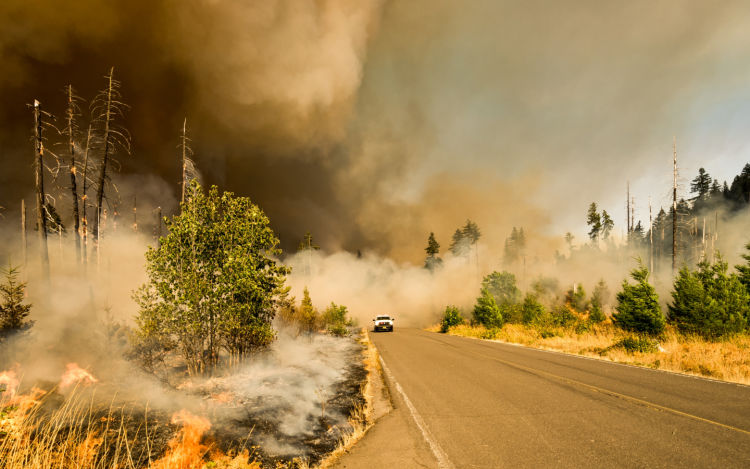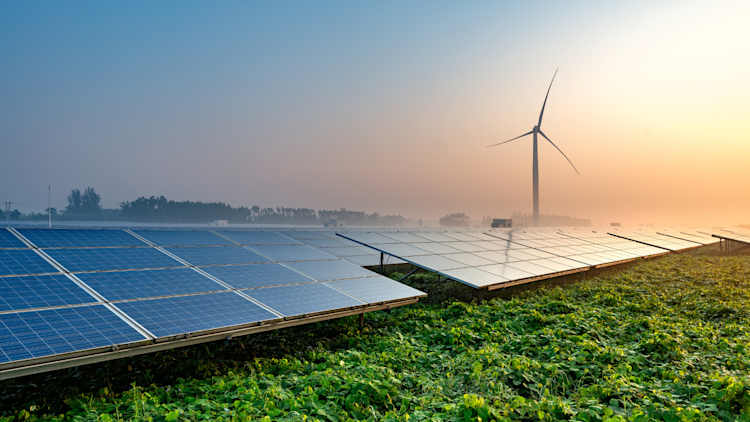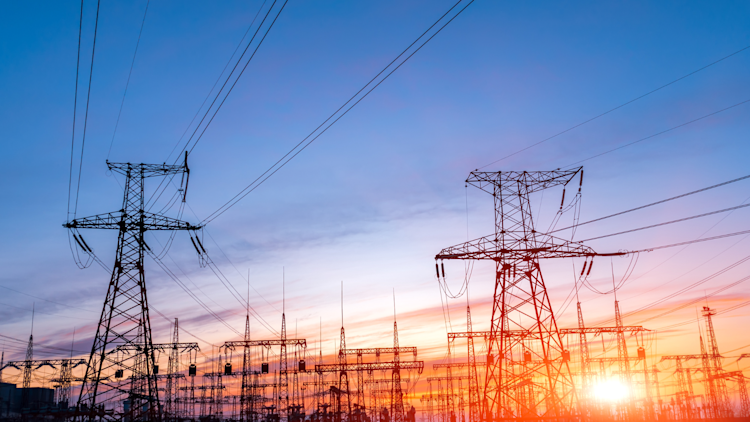The Impact of Wildfires on Air Quality
Climate change threatens to undo the progress made over decades to improve air quality across North America.
by ecobee on 10/28/2021 in Better Planet
5 min read

“My asthma is going crazy today. This is horrible."
"I just stepped outside. It smells acrid and even slightly stings my eyes. Can’t imagine how bad it is closer to the fires."
Twitter and reddit, the water coolers of the internet, lit up with confusion and dismay. Clear blue skies over Toronto turned to a yellowish-orange haze as southerly winds brought toxic smoke from 100+ wildfires in Northern Ontario.
Torontonians typically enjoy some of the cleanest air in the world, but on July 20, 2021, residents watched the city climb the rankings of most polluted cities.
“If you have any kind of respiratory condition, avoid running, walking, or even being outside for an extended period of time. Best to stay in an air conditioned house until the AQHI improves,” tweeted Anthony Farnell, the Chief Meteorologist for Global News.
Toronto wasn’t the only metropolis breathing unhealthy air. Smoke from these wildfires blanked North American skies from Minneapolis to New York City triggering air quality health advisories across many cities.
Over the past 50 years, environmental protection regulations in Canada and the United States have successfully improved the air quality of our skies, but climate change threatens to undo that progress.
Wildfires are becoming more frequent and more extreme University of California San Diego environmental health scientist Rosana Aguilera’s research highlights the need to “reckon with the health effects of that.” 1 in 7 Americans experienced dangerous levels of air pollution in 2020. That’s almost 50 million people. And summers in California are colloquially called “fire season”, and those with the means to do so, proactively flee the state for less smoky skies.

What is air pollution anyway?
You may be familiar with common household pollutants like CO2 and CO. Unhealthy levels of CO2, or carbon dioxide, in a home is often due to poor ventilation and can be easily remedied by opening a window. CO, or carbon monoxide, on the other hand, is a poisonous odorless gas that can be released by any inefficient gas or oil-burning appliance, like a furnace or oven. Depending on where you live, regulations may require you to have a CO detector in your home.
However, unless you live in a city where severe air pollution is a recurring challenge, you may not be as familiar with PM2.5, which measures the concentration of extremely small airborne particles that are about one-twentieth the width of a human hair. These particles are so small that your body’s natural defenses against air pollution, like your nose and lungs, are unable to stop them from entering your body.
Unfortunately, PM2.5 particles are the main component of wildfire smoke.

The shocking health effects of air pollution
There is no organ and virtually no cell in the human body that is not affected by PM2.5 air pollution. Comprehensive global research shows “head-to-toe harm, from heart and lung disease to diabetes and dementia, and from liver problems and bladder cancer to brittle bones and damaged skin.” Air pollution can even reduce fertility and increase miscarriages.
According to the World Health Organization (WHO), every year 8.8 million people die prematurely because of air pollution. While the majority of these early deaths happen in developing and under developed countries, Canada and the United States aren’t unaffected with 15,300 and 60,000 early deaths, respectively.
But air quality in Toronto was only poor for a couple weeks. What’s the big deal?
Unlike water pollution, the adverse health effects of air pollution on a human body are cumulative. If you’re exposed to polluted water, you may experience an upset stomach for a few days, but will likely recover without any long-term effects. Air pollution isn’t so kind. You carry around the cumulative weight of air pollution exposure with you forever.

Even short-term exposure to air pollution is striking. It makes workers less productive, increases sick day absences, increases hospital visits and hospitalizations due to respiratory illnesses, and costs businesses billions of dollars. Even low levels of air pollution affect chess grandmasters with diminished cognitive function. Chess tournaments organizers have begun to livestream the chess board, players, and real-time fluctuations in air quality levels in the room.
With extreme weather events happening more frequently, you can reduce your exposure to air pollution by staying indoors (preferably with an air purifier), wearing an N95 face mask while outdoors, and always making sure that the air filters in your home’s HVAC system are replaced regularly. Studies show that air filtration is an effective way to keep your family healthy1.
However, it will take more than personal choices to win the fight against climate change and air pollution. You can help by keeping organizations and governments accountable for limiting emissions of greenhouse gases and pollutants into the atmosphere, and meeting the World Health Organization’s (WHO) new guidelines for clean air globally.

About Amrit Sharma
Amrit Sharma is a Senior Developer Advocate at ecobee. Besides talking to developers about APIs, he is passionate about digital products that help everyday people access and understand air quality data. He serves on the Board of OpenAQ, a DC-based non-profit fighting air inequality. His writing and photographs have also appeared in BBC Travel, Huffington Post, ScoopWhoop and other publications. Follow him on Twitter at @amrit_sharma.
1 Per "HVAC filtration and the Wells-Riley approach to assessing risks of infectious airborne diseases", National Air Filtration Association (NAFA) Foundation, dated March 2012. Full report available here.
Did you enjoy this article?
Thanks for letting us know!






